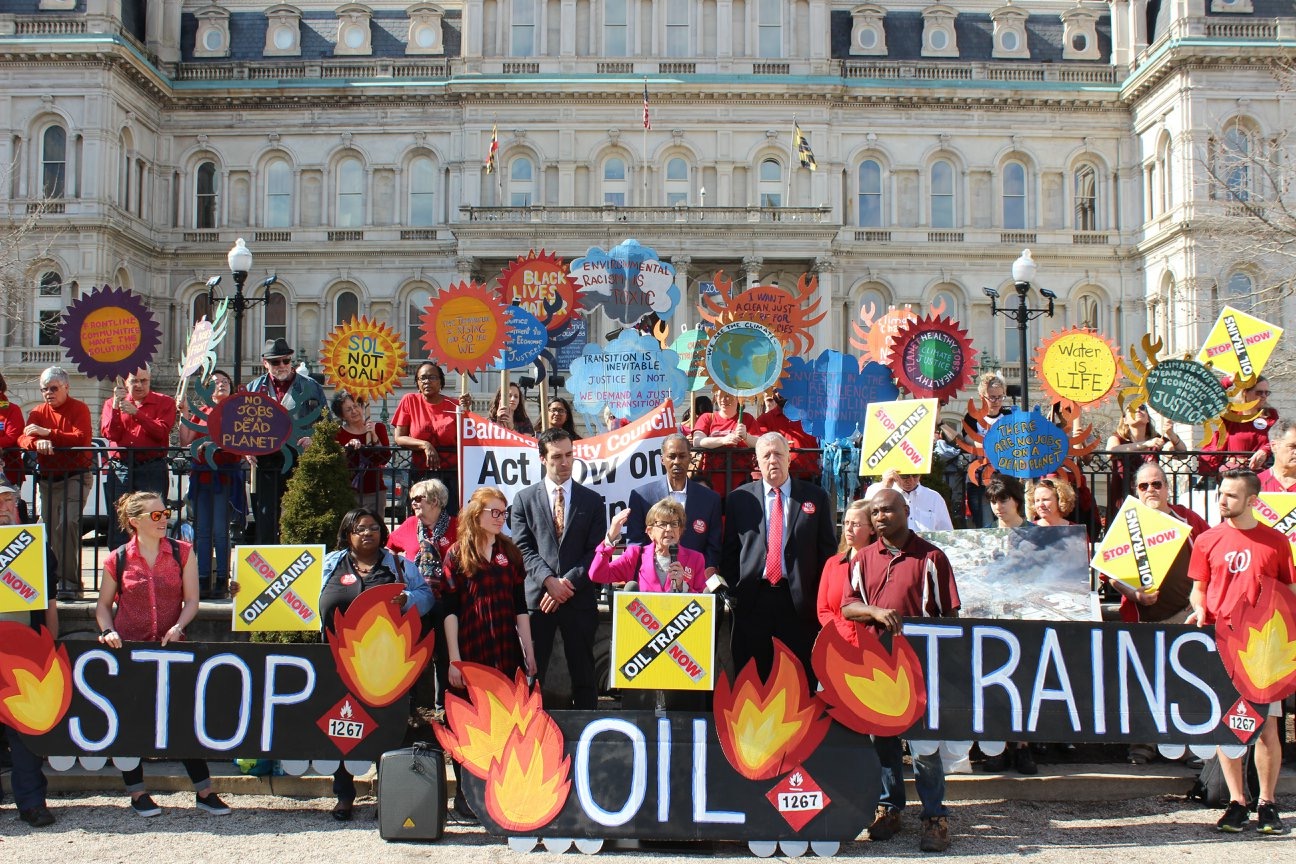
On Friday afternoon, a freight train derailed over the 1900 block of Falls Road. Media outlets are reporting that at least five train cars fell at least two stories onto the Baltimore Streetcar Museum, Falls Road, and surrounding green space. Fortunately, no leaks, spills, or injuries have been reported. But this is only a matter of luck, as trains carrying hazardous materials travel through Baltimore routinely.
In April 2018, Baltimore City passed the Crude Oil Terminal Prohibition, banning the construction of new and the expansion of existing crude oil terminals in Baltimore. This was the strongest action the city could take to protect itself from crude oil train traffic at a pivotal point in fossil fuel shipment trends across the continent. Since the passage of the Crude Oil Terminal Prohibition, rail shipments of crude oil from the US to Canada have grown from 5.1 million barrels in April 2018 to 10.7 million barrels in December 2018, according to the U.S. Energy Information Administration. By banning new terminals, Baltimore City ensured that this increased demand for crude-by-rail shipments did not lead to the construction of a new crude oil terminal in Baltimore City.
Yesterday’s derailment once again demonstrates that rail accidents in Baltimore do happen. We are reminded of other close calls in the recent past: the collapses of 26th St in 2014 and 2018, the freight train explosion in Rosedale in 2013, and the derailments in the Howard St Tunnel in 2001 and 2016 . The Crude Oil Terminal Prohibition at least makes it less likely that derailments like these will involve crude oil, which could explode catastrophically if involved in a derailment like the one yesterday. Increased regulations and investments in rail safety at the state and federal levels and an end to the practice of shipping crude oil by rail are necessary to keep communities near freight rail lines safe.
Background:
Crude oil trains and other hazardous materials can travel on the freight train lines that run throughout Baltimore City. 165,000 Baltimoreans live in the crude oil train “blast zone” – the area that could be directly impacted if a train were to derail and explode near their homes.
In 2014, a Texas-based company called Targa Terminals applied for a permit to transfer crude oil at a terminal in South Baltimore. If approved, the terminal could have brought an additional 380 million gallons of explosive crude oil through the city’s rail lines every year. The Maryland Department of the Environment denied that permit after it found the company did not meet air pollution requirements.
In 2017, the Baltimore City Council unanimously passed a Climate Resolution that outlined specific steps the City should take to protect residents from the impacts of climate change. The resolution notes that crude-by-rail traffic enables “the extraction and combustion of some of the most climate-polluting oil on the planet” and called for the City to “limit the development and expansion of facilities that handle crude oil.”
In 2018, Baltimore City passed the Crude Oil Terminal Prohibition, which defined crude oil terminals as a prohibited land use in the city’s zoning code. Its passage prevented Baltimore City from becoming a hub for additional crude oil train transfers, which would put neighborhoods along the train route at significant increased risk.
###